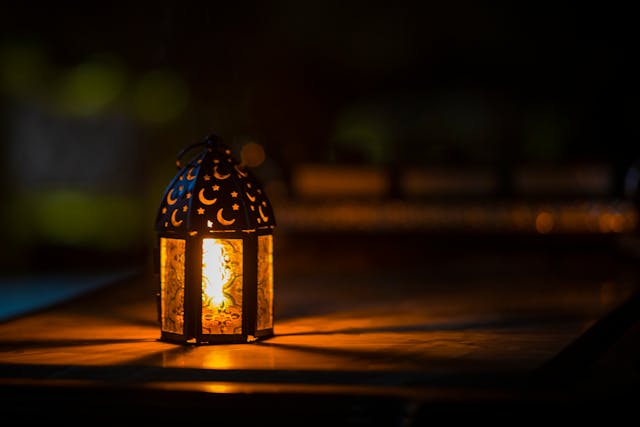As the holy month of Ramadan approaches, Muslims around the world eagerly anticipate the opportunity for spiritual growth, self-reflection, and devotion. Ramadan, the ninth month of the Islamic lunar calendar, is not only a time of fasting from dawn till dusk but also a period of introspection, prayer, and acts of charity.
Here’s a comprehensive guide from Islamic Relief USA (IRUSA) on how to prepare for Ramadan, withsuggestions for spiritual practices, prayer, goal setting, and family activities during this most blessed time of the year.
Understanding the essence of Ramadan
Ramadan holds a profound significance in Islam. It commemorates the revelation of the Quran to Prophet Muhammad (PBUH) and serves as a time for Muslims to draw closer to Allah (SWT), seek forgiveness, and purify their souls. Fasting during Ramadan is obligatory for adult Muslims, with exceptions for those who are ill, pregnant, nursing, or traveling.
Preparing mentally and spiritually
Preparation for Ramadan can begin before it starts. It involves mental and spiritual readiness to fully embrace the blessings and challenges that accompany fasting and increased devotion. Reflecting on your intentions and setting goals can help deepen your faith during Ramadan.
Ramadan duas
Duas, or supplications, hold immense significance during Ramadan. Muslims engage in frequent prayers, seeking guidance, forgiveness, and blessings from Allah (SWT). It’s a good idea to familiarize yourself with specific Ramadan duas, such as those for breaking yourfast (iftar) and for protection from difficulty. These prayers serve as a means of spiritual connection and reflection throughout the month. For example, when entering a mosque, you might use the dua, “Rabbi-ghfir li dhunoobi wa-ftah li abwaaba rahmatikz,” which means, “O Lord, forgive my sins and open the doors of mercy for me.” IRUSA offers a helpful Ramadan Duas Booklet that you can bookmark, print, and share with your family.
Prayer during Ramadan
In addition to the obligatory five daily prayers, Muslims engage in additional prayers during Ramadan, known as Taraweeh. These prayers are performed after the Isha (night) prayer and consist of long, beautiful recitations from the Quran. Attending Taraweeh prayers at amosque or praying at home can help you and your family immerse yourselves in the tranquility and spirituality of the month.
Goal setting for good deeds and charity
Ramadan provides a unique opportunity to practice kindness, generosity, and charity in your daily life.Setting goals for performing good deeds and giving to those in need can enhance your spiritual journey during this month. Whether it’s feeding the hungry, visiting a lonely neighbor, volunteering in your community, or donating to charitable causes, every act of kindness is magnified during Ramadan.
IRUSA offers a convenient Ramadan Action Plan to help make the month of Ramadan beneficial to body and soul. Each day includes tools like a prayer tracker, a Quran tracker, and a daily checklist with suggestions for simple acts of kindness and charity. The planner also includes ample space for reflections and challenges, as well as daily tips for enhancing motivation and intention. At IRUSA’s Ramadan Central webpage, you can also find other ways to make an impact through charitable giving, advocating for worthy causes, and helping the less fortunate.
Zakat and sadaqah
Zakat, the obligatory form of almsgiving, and sadaqah, voluntary charity, play central roles during Ramadan. Muslims are encouraged to calculate and pay their zakat during this month, purifying their wealth and supporting those less fortunate. Additionally, individuals are encouraged to give sadaqah generously, spreading compassion and alleviating the hardships of others. You can use IRUSA’s website to calculate your Zakat and discover ways to fulfill your obligation.
Ramadan for children
Involving your children in Ramadan fosters a sense of belonging, spiritual growth, and family unity. Encourage your children to participate in Ramadan rituals and activities tailored to their age and understanding. For example, you might read stories from the Quran, include your kids in cooking special meals for iftar, and volunteer together as a family.
IRUSA has a wealth of Ramadan kid-friendly activitiesfor families with young children, including fun games, fasting charts, coloring projects, Ramadan and Eid cards, and printable home decorations that parents and children can make together to decorate the home for this holy month. Also available are good deed cards to help kids appreciate the importance of kindness and charity. All these activities are great ways for parents to instill values of empathy, gratitude, and devotion in their children.
Take action and get involved
Another way to bring Ramadan into your heart is with the IRUSA Good Deeds Challenge. Mark a square each time you complete a designated good deed—for example, “Donate to a fund of your choice” and “Give an Eid gift to your neighbor.” Then, snap a photo and post to social media to encourage others to join in.
Similarly, IRUSA’s Ramadan Action Calendar is an excellent resource if you’re interested in using this Ramadan to get more involved in your community, deepen your faith, and become a more active, informed Muslim citizen of the world.
Making the most of this holy month
As we enter Ramadan, it is essential to approach the holy month with intention, mindfulness, and a sincere desire for spiritual growth. By embracing the practices of fasting, prayer, charity, and reflection, you can enrich your connection with Allah (SWT) and deepen yoursense of community. Head to the IRUSA Ramadan Central webpage to access the resources linked above and learn more ways to embrace this holy month.
